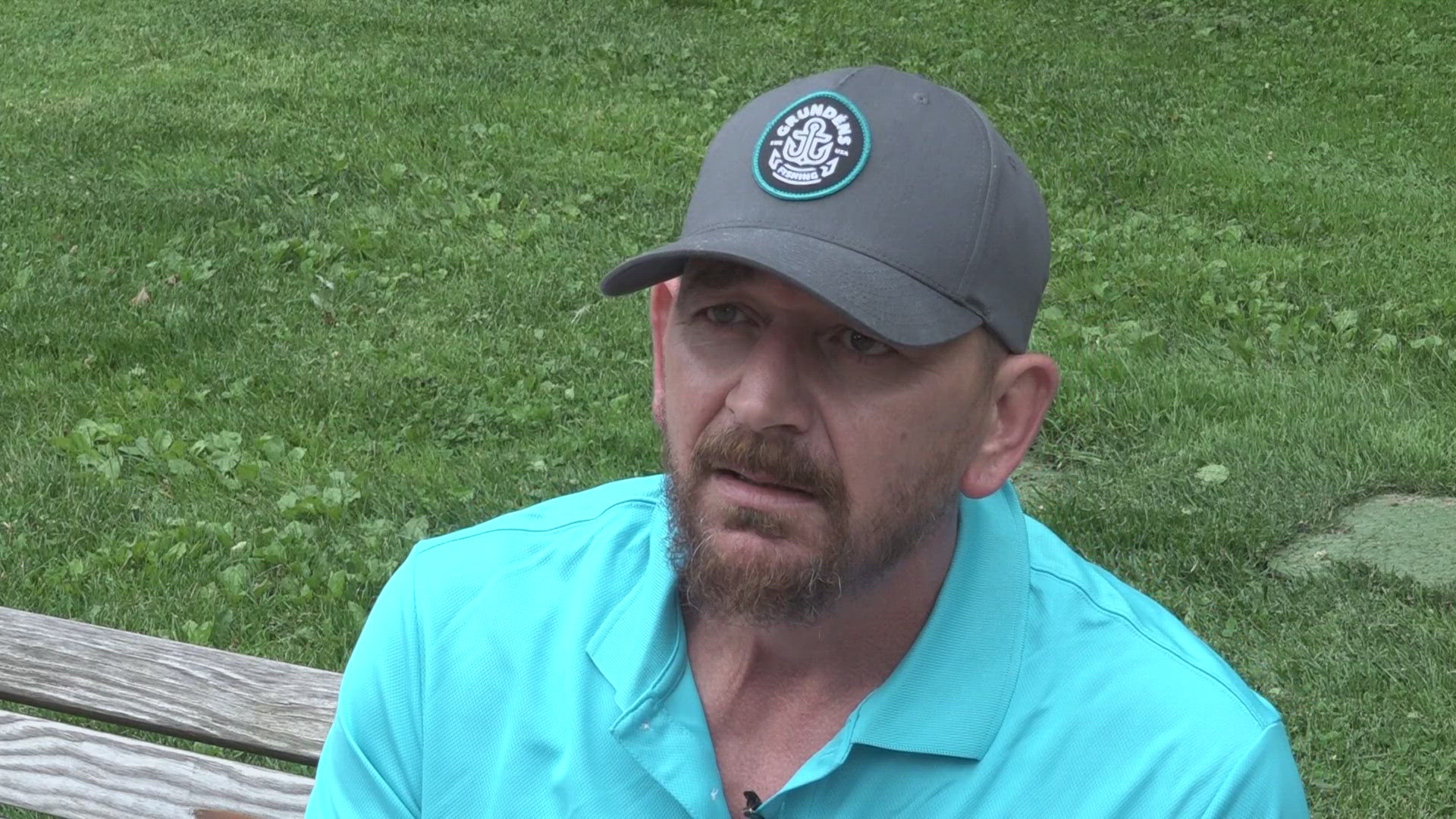PORTLAND, Maine — Walking through Brian Arborio's new apartment, you can tell it's the small things that mean so much to him now.
"This one is doing really good," Arborio said, speaking about his plants. "I realized I could do OK with plants, I moved up to fish, eventually we'll get something small with four legs and furry."
As he waters them, he reflects on his past life that didn't allow for little luxuries like pets or plants.
"When you don't have four walls or a door, it's constantly you versus everything else," Arborio said.
It's a battle he fought for almost three years starting in 2021, when he said he lost his job and eventually was priced out of his rent, forcing him to live out on the streets.
"There's things that happen to us that are well beyond our choice and you wind up out there," Arborio said.
Everything changed once Arborio became homeless. Habits and choices he would have never considered before became his only comfort.
"I challenge anybody to spend as much time as I did on the streets and not pick up a drug or a drink," he said.
For Arborio, drinking became a way to numb the pain and silence the fears that come with living outdoors.
"I knew I was going to need to get sober to get off the streets, but my sobriety had nothing to do with me ending up on the streets," Arborio explained.
Brian took the first steps toward housing in December, by getting sober and then placed into the York County Shelter. But what was meant to be a transitional period ended up lasting much longer than he planned.
"After two or three months of living in a shelter, it becomes toxic for the human psyche," Arborio said.
For seven months, Brian was sleeping in bunk beds next to twelve other men, all sharing one bathroom.
"Is it better than being outdoors? I don't know. It was just as tough," he added.
Brian said he stayed motivated through journaling, documenting his life on social media, and making connections.
"That was the pivot point to so many things changing very rapidly," Arborio said.
He garnered so much attention that someone from the American Civil Liberties Union invited him to Washington D.C. to represent homeless voices and help lobby the Supreme Court in April to strike down Grants Pass.
"If you can't put us into housing, then you should give us a sanctuary area for us to camp," Arborio said.
The court ended up ruling that cities can legally enforce bans on sleeping outdoors in June, but Brian said just being part of the push against that gave him hope. Then, after years of waiting, he was approved for government-subsidized housing in Portland.
"I think this is somewhere I'm supposed to be and it gives me the chance to do exactly what I'm supposed to be doing," Arborio said.
Brian is now dedicating his professional life to outreach. However, he acknowledges systemic changes take time and there is more that can be done sooner on a smaller scale.
"Ultimately, it comes down to the issue of housing, but in the meantime, everybody gets stuck in this loop," Arborio explained. "People in the community need to do what they can to directly respond to one person."
Brian considers his story one of motivation, saying he learned that even in the worst conditions, you can make it through with the right support.
"This is what it looks like when the community really takes care of their own. It wasn't all about money or food or anything, it's just because there was somebody there to say keep going, we're rooting for you Brian, keep going," Arborio said.
Brian got his housing through the Portland Housing Authority. While they couldn't comment specifically on Brian's case, they said they maintain several waiting lists and work with partner organizations to get those at risk of homelessness onto those lists. The organization also said the lists are lengthy and audited by the Department of Housing and Urban Development to ensure compliance with the rules governing each program.
If you would like to apply for Section 8 rental assistance, you can do so here.

